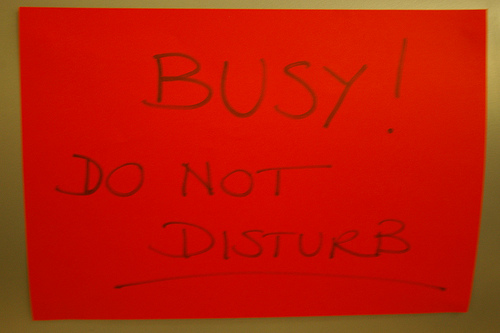- HubPages»
- Health»
- Mental Health»
- Stress Management
How to Relieve Stress in a Busy Lifestyle

You Think You're Too Busy to...
You think you're too busy to be able to slow down today -- maybe tomorrow or next week.
You're making your way up the corporate ladder at lightning speed. You can't think about slowing down now -- perhaps when you make it to the top you can take some deep breaths.
Hectic? You're certain that word doesn't begin to describe the way your life goes day-to-day. The kids are involved in sports, music lessons, dance and you're active in the PTA plus carpooling the kids to and from school.
It's all good today, for this moment. What about tomorrow? What about when you're able to slow down long enough to realize that the stresses of your busy lifestyle have taken a toll. The price may be high blood pressure, frayed nerves or strained personal relationships.
Take steps now to relieve your stress with one or more of the tips that follow to prevent or lessen some of the tension and anxiety in your busy lifestyle

Downsize Your Expectations of Yourself and Others
Having goals in life is a positive attribute, unless those goals are unrealistic. Learning to have reasonable expectations can be difficult if you're a perfectionist or have a type A personality, but it can be done.
While it can be stress-inducing to have high expectations for others, it is often the unrealistic hurdles we set for ourselves that result in feelings of inadequacy, anxiety and depression.
Just as people who want to lose weight are advised, set smaller, attainable goals on the way to your long-term goal. The feeling of accomplishment when the smaller goals are attained increases self-esteem and reduces anxiety. As each smaller goal is reached, you are one step closer to your long-term goal. Even when setbacks happen and a smaller goal is not attained on the first attempt, you don't have as far to go emotionally, mentally or physically to reach it on the next attempt.
Gone will be the feelings of futility and exasperation, the desperation of the rat race that unrealistic expectations bring.

How to Relieve Stress -- Even if You're too Busy
Schedule Time for Yourself and for Others
First you have to want to carve out some moments of each day for yourself, whether that be 30 minutes of exercise or an extra long shower to begin the day or a mid-afternoon siesta.
Spend those "me" moments on something other than the problems of the day. Listen to mood-lifting music, concentrate on positive thinking, meditate or use guided imagery to free your thoughts and allow you to adjust your attitude to be positive and open.
You also need to carve out some time in each day for your partner, your family or friends. Dinner time is an excellent opportunity for the family to come together and has been proven to be a stabilizing factor for children and the family unit.
Social isolation has been linked to more rapid aging, decline in physical health and mental acuity. This doesn't mean you have to attend a party every week, but it is important to maintain friendships and social connections. You'll find yourself feeling refreshed after a few hours on the golf course with a friend or two, or a day at the spa with your girl friends.
While you're at it, be certain you teach your children not to over-schedule their own lives. Yes, you can do this by lecturing them, but the most effective teaching is to model the behavior you want your children to emulate. As they say, don't just talk the talk, but walk the walk.
How to Change Your Mindset to Reduce Stress
Learn to Say 'No'
It sounds so simple to those who have no problems with saying "no" that other people would have to learn to do so. But the peace-keepers, the people pleasers and the rescuers among us not only don't say "no," they often volunteer themselves for projects and errands --often to the detriment of their own emotional and physical health.
The next time your supervisor asks you to tackle an extra project, let him know you'll need to check your schedule before you give him an answer -- then do so.
Your neighbor asks you to babysit, but you had other plans for the afternoon.
Your buddy wants to know if you can help him move this upcoming weekend, but your wife has made plans for the two of you to go out of town.
You have choices to make in each of these situations and each person deserves an answer, but not a reason. It is okay to simply say, "No." The first few times you make your own needs and desires as important to you as that of others may be difficult, but it will become increasingly easier -- and your stress will decrease.








